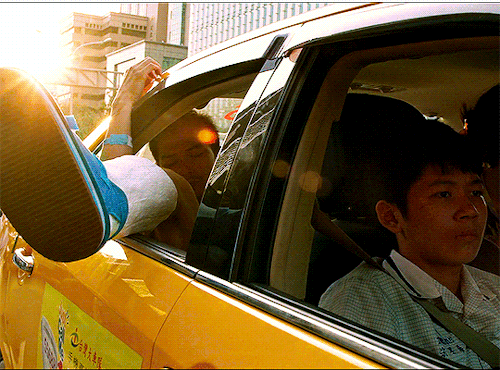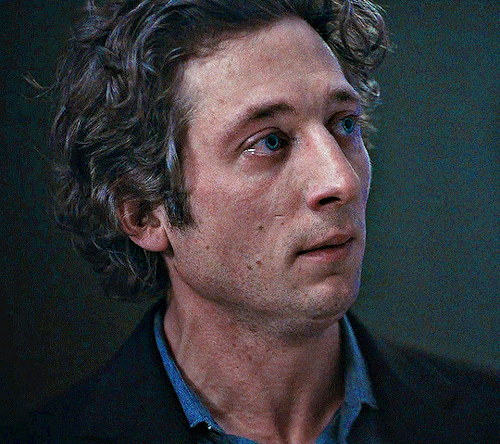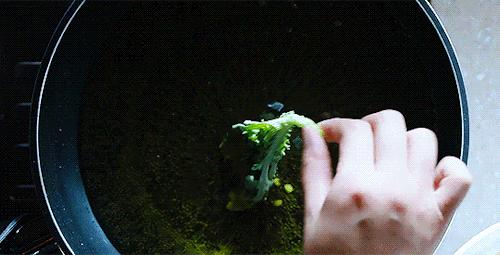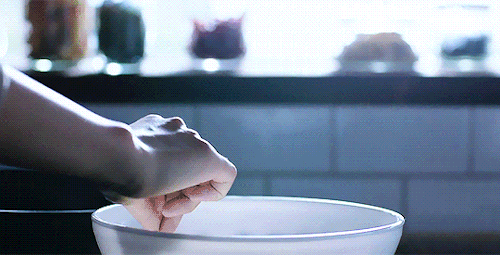Another Thing I Really Like About Koisenu Futari, Is How It Exemplifies The Ways Amatonormativity Also
Another thing I really like about Koisenu Futari, is how it exemplifies the ways amatonormativity also impacts allo people.
When Sakuko’s sister Minori gets proof that her husband is cheating on her (after actively investigating to make sure).

She’s still hesitant to divorce him.
Not because she still loves him (that doesn’t come up even once).
Not because he is a great husband beyond the cheating (the screaming match about how she was the only one taking care of their daughter shows pretty clearly that he wasn’t pulling his weight).


Not even because it’s a lot harder to raise two kids on her own (tough it is mention in passing - did I mention she’s 9 months pregnant at that point? and then promptly goes into labor?).



Not even really what society is going to say about her (even tough it would be completely justified, especially in Japan).
But because she’s terrified of being alone.


And then again while she's in labor


In that way, she mirrors Sakuko’s own fear of loneliness.
And of course, she associates being single with being lonely. Because amatonormativity.
She verbalizes the relationship elevator: getting married, having a child, buying a house, another child. She calls it "a game of adulthood".




But while she comes to the conclusion that she failed at this "game of adulthood", she doesn't really get to the conclusion that it's bullshit.


Even with her sister's example right in front of her, she has trouble imagining happiness outside of marriage.
Most likely because she still sees Sakuko and Takahashi's relationship as abnormal, and therefore reserved to abnormal people. So she can't apply their example of being happy outside of marriage to herself yet. Not when she's tried to hard to be the perfect normal woman.
But no matter if Minori believes it or not, single doesn't have to mean lonely, which Sakuko proves immediately by promising to always stand by her sister's side.


And then Sakuko meets Takahashi’s ex Haruka, who explains that she moved to the countryside after their break-up, and then started up her (now very successful) farm.
Sakuko’s reaction is to say it was then a blessing in disguise

To which Haruka thanks her, saying that most people are just sad for her because she’s “old” (around 40) and still single, even tough she’s perfectly happy as is.



She’s a really good illustration that:
amatonormativity impacts everyone who strays out of it, it doesn't matter if you're aro or allo
you don’t need to be aro to be happy outside of amatonormativity’s expectation
And in that way, I feel like that makes her an optimistic answer to Minori’s concerns about loneliness.
(And then of course there is Kazu-kun, but there is so much to say about him, he'll get his own post.)
I really liked that the shows takes the time to talk about those experiences, because it makes amatonormativity much more real. It is a systemic issue, so of course it impacts everyone.
And I think we've all had discussions like this, where other people's own internalized amatonormativity also completely invalidated our experiences.
So it was great to see it explored so clearly here.
(also this has nothing and everything to do with it, but the fact that in the credit, Minori is called by her husband's name. I don't think it's used in the show itself but. You know. All of a woman identity depending on her husband. All that.)
More Posts from Sayaosi and Others
Great review!
Anatomy of a Fall (2023)

Of all the legal thrillers I’ve seen, Anatomy of a Fall feels the most genuine and relatable. While there are big revelations about the people involved and technically, they come suddenly, this isn’t a story of accidental confessions, surprise witnesses, or even earth-shattering pieces of evidence. Something happened while there were no witnesses present. The court must decide whether a crime was committed or not based on the evidence. That's it. In the process, the film peels back layers to reveal the truth and half-truths that comprise relationships.
Sandra Voyter (Sandra Hüller) is woken from a nap by her son, Daniel (Milo Machado-Graner). Her husband (his father), Samuel Maleski (Samuel Theis), has fallen from their roof and died. She insists it must have been an accident - he was working on the roof when she went to sleep. The authorities are not convinced and she is indicted on charges of murder.
There’s a particular line in the film that summarizes what a nightmare this situation is. It's something like “What you hear, it’s just a small part of the whole”. As we're presented with testimonies from experts and people who knew Samuel, as more evidence is brought forth, we're given a version of Sandra and Samuel's relationship. In a way, it’s not even Sandra who’s on trial; it’s her marriage. If she and her husband fought a lot, if someone was unfaithful, if someone was planning on leaving, then it probably means Sandra killed him. It’s not even if the whole relationship was bad; it’s if it was bad recently. We're not talking about "a rough patch" or something they could've overcome. This fragment is now the whole.
In a way, the trial is a matter of life and death. The jury is deliberating whether Sandra killed her husband. It’s also about an intimate subject you could call mundane in the grand scheme of things: two people’s marriage. Drawing a conclusion from the snippets presented is an unfair way to judge their relationship but it’s also the best way to see what it was like because you get the “highlight reel”. By the time this film is over, you feel like you know these people so well that they're no longer characters in a film. Then, you remember that quote from earlier and you second-guess everything. Do you really know? That sentiment is amplified by the revelations that come up during the trial. They’re not the sort of bombshells you’re used to seeing in these legal dramas, but they’re just as earth-shattering and revelatory.
The film is as absorbing as it is because of the excellent script by Justine Triet (who also directs) and Arthur Harari and the performances. There are so many character moments in Anatomy of a Fall that I see it as the kind of film you would come back to in the future, despite so much of the suspense coming from the uncertainty of the final verdict. Even some of the minor characters I keep thinking back to, like the two forensic analysts who bring to the stand completely different interpretations of three drops of blood found outside. It makes you wonder if they - despite having no investment in this narrative whatsoever - somehow made up their minds about the case anyway and brought in their biases. Why else would they be so combative? Many characters are deliberately unlikable, but not in a way that makes them villains. Wait. Did I dislike them because of who they really are, or because of the way I perceived them based on the evidence presented? hmm.
Anatomy of a Fall is a film of complex emotions. There are so many details in the case, the way the characters behave or relate to each other that you forget everything else around you. The performances are excellent, as is the script. You've never been put on trial for murder before but you'll know what it must feel like once the end credits roll. (March 27, 2024)

Downton Abbey S3E5 demonstrates how a well-written death can affect the audience beyond the screen;
Sybil was a side character for most of the show, but she had her moments to shine, especially during the war when she was working at the hospital, which is pointed out by Thomas when they hear of her death. Thomas's reaction in particular is one that stands out in terms of how well-written the scene is - it would have been easy to have him be cold about the matter, considering his insistence that he doesn't care much about their employers in earlier seasons, or to have a mild reaction of vague sadness at most, but no, Thomas, who was until now always cold and cynical, sobs. He tries to keep up his facade when Anna checks on him, tries to insist that Sybil wouldn't have cared if he had died, only to sob even more when admitting - more to himself than Anna, really - that she would have cared.
It's an especially heartbreaking scene to watch when remembering that the only other times he had previously shown this kind of desperate vulnerability were when he decided to get out of the trenches, after he figured out the scam, and - and! - after the death of Edward Courtenay, an experience he shared with Sybil. The first two can be argued to be selfish, in the roughest terms, as they are about Thomas, but the latter two and the pure grief he displays for both someone he was romantically interested in and someone he pretended not to care about speaks volumes in terms of who Sybil was, and that even after she is dead already. It's fascinating to see the scene in this light, how 'even' someone like Thomas, someone with little regard for the upper class, was touched by Sybil's life and death to such a degree that he will openly show this amount of pain and general emotion over her loss.
Alongside Thomas's, there are other particularly touching moments in this episode as well, of course, with especially the reaction of Daisy - who had been in a bad mood for the entire episode - standing out as one that shows how the news break her away from her jealousy; Mrs. Hughes referring to Sybil as "the kindest being in this house" with this barely contained sadness and, a bit later, hugging Daisy for comfort as well pushes this further, even if Mrs. Hughes has been established as having a bit of a softer side.
All of these small details just in the reactions of the servants show how well this episode and the show as a whole are written in terms of how they handle difficult emotions and especially grief. The reactions of the people around the deceased are always so much more powerful in touching the audience than the actual death itself. Wonderful writing, here the same as with the deaths of Edward, Lavinia and and William.
christopher nolan did such an exceptional job at making the audience feel the tension and horror during the trinity test sequence even though we already knew the outcome and what it meant when they realized that the bomb actually works
I love this film sm 💚






誰先愛上他的 | DEAR EX 2008 | dir. Mag Hsu, Hsu Chih-yen
i just saw perfect days and i don't want a smartphone anymore. like, i genuinely don't want this thing anymore. i'm starting to think about all the times i've missed something beautiful existing in front of me because i felt the need to look down at my screen. how much time have i wasted getting quick hits of dopamine instead of getting true enjoyment from something as simple as the sunshine rippling through the trees? i'm wondering when my appreciation for real beauty met its death by way of an addiction to artificial blue light. there's no surprises or moments of amazement when you're constantly attached to the interwebs.
but i want to be surprised. i want to be amazed. i want to feel life again through my own skin, not another mindless swipe or tap.

the absolute funniest plot of nbc hannibal is the fact that the fbi is looking for a serial killer that is highly skilled in evading the police and has been killing for decades in multiple countries, and then they hired a guy who showed up to work like this every day to catch him.











LITTLE FOREST (2018), dir Yim Soon-rye



It worked. You're here. The Bear, S03E10







LITTLE FOREST (2018), dir Yim Soon-rye
they really let this mf clock into work lookin like this

-
 pratiquecompte liked this · 3 weeks ago
pratiquecompte liked this · 3 weeks ago -
 aaunyea reblogged this · 1 month ago
aaunyea reblogged this · 1 month ago -
 circles19 liked this · 1 month ago
circles19 liked this · 1 month ago -
 obsessedferalgremlin liked this · 1 month ago
obsessedferalgremlin liked this · 1 month ago -
 satan-save-my-soul liked this · 2 months ago
satan-save-my-soul liked this · 2 months ago -
 scyllaz liked this · 2 months ago
scyllaz liked this · 2 months ago -
 gremlinaut reblogged this · 2 months ago
gremlinaut reblogged this · 2 months ago -
 gremlinaut liked this · 3 months ago
gremlinaut liked this · 3 months ago -
 stephen9260 reblogged this · 3 months ago
stephen9260 reblogged this · 3 months ago -
 stephen9260 liked this · 3 months ago
stephen9260 liked this · 3 months ago -
 zerosocialskillz liked this · 3 months ago
zerosocialskillz liked this · 3 months ago -
 bapsquare liked this · 3 months ago
bapsquare liked this · 3 months ago -
 hannasational liked this · 3 months ago
hannasational liked this · 3 months ago -
 couriwaytown liked this · 3 months ago
couriwaytown liked this · 3 months ago -
 pal-ace liked this · 3 months ago
pal-ace liked this · 3 months ago -
 marcelinealice liked this · 3 months ago
marcelinealice liked this · 3 months ago -
 karmen-the-snail liked this · 4 months ago
karmen-the-snail liked this · 4 months ago -
 pleasantartisanhottea reblogged this · 4 months ago
pleasantartisanhottea reblogged this · 4 months ago -
 pleasantartisanhottea liked this · 4 months ago
pleasantartisanhottea liked this · 4 months ago -
 hefeilight reblogged this · 4 months ago
hefeilight reblogged this · 4 months ago -
 artemis-boy liked this · 4 months ago
artemis-boy liked this · 4 months ago -
 vanillatumbleweedscoffee liked this · 4 months ago
vanillatumbleweedscoffee liked this · 4 months ago -
 dontforgetthedragon liked this · 5 months ago
dontforgetthedragon liked this · 5 months ago -
 namesandrocks reblogged this · 5 months ago
namesandrocks reblogged this · 5 months ago -
 namesandrocks liked this · 5 months ago
namesandrocks liked this · 5 months ago -
 ancient-light reblogged this · 5 months ago
ancient-light reblogged this · 5 months ago -
 ancient-light liked this · 5 months ago
ancient-light liked this · 5 months ago -
 witchy-capri reblogged this · 5 months ago
witchy-capri reblogged this · 5 months ago -
 witchy-capri liked this · 5 months ago
witchy-capri liked this · 5 months ago -
 saint-oleander liked this · 5 months ago
saint-oleander liked this · 5 months ago -
 krispyllamas liked this · 5 months ago
krispyllamas liked this · 5 months ago -
 theseustheking liked this · 5 months ago
theseustheking liked this · 5 months ago -
 asexualfromhell liked this · 6 months ago
asexualfromhell liked this · 6 months ago -
 saiya99 reblogged this · 6 months ago
saiya99 reblogged this · 6 months ago -
 bothersomedirtchild liked this · 6 months ago
bothersomedirtchild liked this · 6 months ago -
 colour-coded-ninjas reblogged this · 6 months ago
colour-coded-ninjas reblogged this · 6 months ago -
 trashcan-train reblogged this · 6 months ago
trashcan-train reblogged this · 6 months ago -
 trashcan-train liked this · 6 months ago
trashcan-train liked this · 6 months ago -
 tokidokish liked this · 7 months ago
tokidokish liked this · 7 months ago -
 mamoriken reblogged this · 7 months ago
mamoriken reblogged this · 7 months ago -
 mamoriken liked this · 7 months ago
mamoriken liked this · 7 months ago -
 alaanz liked this · 7 months ago
alaanz liked this · 7 months ago -
 randomgallium liked this · 7 months ago
randomgallium liked this · 7 months ago -
 caninerat reblogged this · 7 months ago
caninerat reblogged this · 7 months ago -
 kudadaze liked this · 7 months ago
kudadaze liked this · 7 months ago -
 odetobooo liked this · 7 months ago
odetobooo liked this · 7 months ago -
 meri-la-ghost liked this · 7 months ago
meri-la-ghost liked this · 7 months ago

She/her | 22 | 🩷💛🩵-💚🩶🤍🩶💚Blogging about my various interests including TV shows, film, books, video games, current events, and the occasional meme. My letterboxed: https://boxd.it/civFT
123 posts